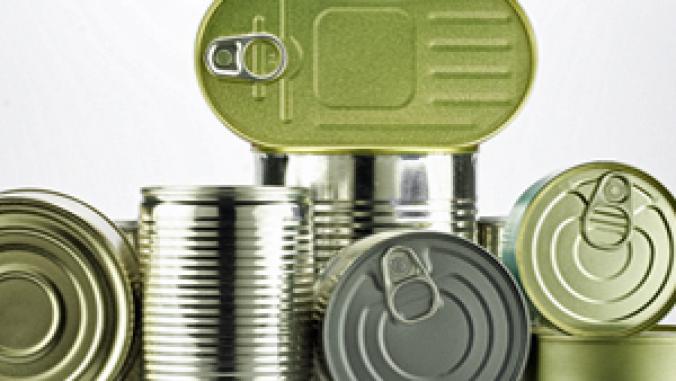Sugar Cane Drives Amyris Venture into Biofuel
Amyris Biotechnologies Inc., a firm that made its mark developing a key ingredient for an anti-malaria drug, is looking to make diesel fuel derived from sugar cane the next big thing in the biofuel market.

Amyris Biotechnologies Inc., a firm that first made its mark developing a key ingredient for an anti-malaria drug, is looking to make diesel fuel derived from sugar cane the next big thing in the biofuel market.
The company based in Emeryville has opened a pilot plant near its headquarters to refine development of the product it's calling No Compromise renewable diesel fuel. The name is based on the firm's assertions that its fuel performs as well as — and in some cases, it says, much better than — petroleum-sourced fuels and biofuels that are now on the market.
The new plant, which was completed in September and went on online the same month, is intended to be a "technical gateway," company leaders said, for the commercialization of the No Compromise fuel with a goal of bringing it to market in 2010.
The 16,628-square-foot plant is also intended as a model for a larger pilot plant the firm is building in Campinas, Brazil, with its strategic partners Crystalsev, one of the larger ethanol distributors and marketers in Brazil, and SantelisaVale, the second-largest ethanol and sugar producer in the country. SantelisaVale has committed two million tons of sugar cane crushing capacity, including its flagship Santelisa mill, to enable the joint venture called Amyris-Crystalsev to ramp up and carry out initial production of Amyris diesel.
In pursuing development of the fuel, Amyris is leveraging its technological know-how from its work in establishing a proprietary synthetic biology platform. That platform, Amyris CFO Jeryl Hilleman said, makes it possible for the company's scientists to engineer microorganisms, like yeast, and transform sugar into 50,000 different molecules. In turn, that technological flexibility enables the molecules to be used across a range of applications in pharmaceuticals, chemicals and energy.
The firm's early work in that area led to its production of a precursor to artemisinin, a key ingredient in anti-malarial drugs, much more cheaply than conventional technologies, Hilleman said.
"That is really the heart and soul of how the company started," Hilleman told GreenBiz.
The technology, the product of a not-for-profit initiative, and has been passed along to French pharmaceutical firm sanofi-aventis for scale up and commercialization, Hilleman said. Amyris, established in 2003, has carried on its own work with the technology platform to explore development of its renewable diesel as well as renewable jet fuel and specialty chemicals, she said.
As a hydrocarbon-based fuel, the company's diesel is designed so that it resembles components in petroleum-based fuels. The difference is that in addition to similar performance capabilities, the fuel has environmental advantages that fossil fuels can't claim and it has a utility factor that other biolfuels can't claim either, the company contends. Hence, the name No Compromise.
Asked if modifications were required to use the fuel, Hilleman replied, "The answer is very much 'No.' We can blend our fuel at 50 percent, and it can be stored and delivered through the existing infrastructures."
The company projects its first commercial release will be in Brazil in 2010 with a broader release in 2011. In the meantime, the company is working to forge relationships with terminals and distributors in this country while also working on its back-office capabilities to enable a swift move to market, Hilleman said. "Our business model is to become a product company," she said. "We're really excited about this fuel."
Several other firms seeking to offer green solutions that have application in the auto and transportation industries have set similar development horizons, including deployment of an electric vehicle recharge grid powered by renewables.
"All of these are opportunities," Hilleman said, "and it's going to take a lot to solve all our issues. What we're looking to do is a be a big part of the solution. We hope it's a big year for a lot of those things, and we're confident that we have a tangible plan to bring our solution to marker."
In addition to developing a greener fuel, Amyris' pilot plant in Emeryville was designed to be eco-friendly as well, the company said.
In the area of water conservation, the plant's plumbing fixtures exceed basic LEED standards in addition to complying with the conservation guidelines of the regional water utility, according to company spokeswomen. The plant also employs secondary circulating pumps with variable frequency drives to control the heating capacity of water so that it is based on demand.
For energy efficiency, the firm uses four small boilers, which are more efficient than one big one. Building controls are also deployed in the plant and include night setbacks in non-lab areas with optional setbacks based on use for the labs. For further efficiency, the company installed double-paned windows to replace exterior glazing. The plant also employs conservation measures for its HVAC systems, spokeswomen said.
The company based in Emeryville has opened a pilot plant near its headquarters to refine development of the product it's calling No Compromise renewable diesel fuel. The name is based on the firm's assertions that its fuel performs as well as — and in some cases, it says, much better than — petroleum-sourced fuels and biofuels that are now on the market.
The new plant, which was completed in September and went on online the same month, is intended to be a "technical gateway," company leaders said, for the commercialization of the No Compromise fuel with a goal of bringing it to market in 2010.
 |
The 16,628-square-foot plant is also intended as a model for a larger pilot plant the firm is building in Campinas, Brazil, with its strategic partners Crystalsev, one of the larger ethanol distributors and marketers in Brazil, and SantelisaVale, the second-largest ethanol and sugar producer in the country. SantelisaVale has committed two million tons of sugar cane crushing capacity, including its flagship Santelisa mill, to enable the joint venture called Amyris-Crystalsev to ramp up and carry out initial production of Amyris diesel.
In pursuing development of the fuel, Amyris is leveraging its technological know-how from its work in establishing a proprietary synthetic biology platform. That platform, Amyris CFO Jeryl Hilleman said, makes it possible for the company's scientists to engineer microorganisms, like yeast, and transform sugar into 50,000 different molecules. In turn, that technological flexibility enables the molecules to be used across a range of applications in pharmaceuticals, chemicals and energy.
The firm's early work in that area led to its production of a precursor to artemisinin, a key ingredient in anti-malarial drugs, much more cheaply than conventional technologies, Hilleman said.
"That is really the heart and soul of how the company started," Hilleman told GreenBiz.
The technology, the product of a not-for-profit initiative, and has been passed along to French pharmaceutical firm sanofi-aventis for scale up and commercialization, Hilleman said. Amyris, established in 2003, has carried on its own work with the technology platform to explore development of its renewable diesel as well as renewable jet fuel and specialty chemicals, she said.
As a hydrocarbon-based fuel, the company's diesel is designed so that it resembles components in petroleum-based fuels. The difference is that in addition to similar performance capabilities, the fuel has environmental advantages that fossil fuels can't claim and it has a utility factor that other biolfuels can't claim either, the company contends. Hence, the name No Compromise.
Asked if modifications were required to use the fuel, Hilleman replied, "The answer is very much 'No.' We can blend our fuel at 50 percent, and it can be stored and delivered through the existing infrastructures."
The company projects its first commercial release will be in Brazil in 2010 with a broader release in 2011. In the meantime, the company is working to forge relationships with terminals and distributors in this country while also working on its back-office capabilities to enable a swift move to market, Hilleman said. "Our business model is to become a product company," she said. "We're really excited about this fuel."
 |
Several other firms seeking to offer green solutions that have application in the auto and transportation industries have set similar development horizons, including deployment of an electric vehicle recharge grid powered by renewables.
"All of these are opportunities," Hilleman said, "and it's going to take a lot to solve all our issues. What we're looking to do is a be a big part of the solution. We hope it's a big year for a lot of those things, and we're confident that we have a tangible plan to bring our solution to marker."
In addition to developing a greener fuel, Amyris' pilot plant in Emeryville was designed to be eco-friendly as well, the company said.
In the area of water conservation, the plant's plumbing fixtures exceed basic LEED standards in addition to complying with the conservation guidelines of the regional water utility, according to company spokeswomen. The plant also employs secondary circulating pumps with variable frequency drives to control the heating capacity of water so that it is based on demand.
For energy efficiency, the firm uses four small boilers, which are more efficient than one big one. Building controls are also deployed in the plant and include night setbacks in non-lab areas with optional setbacks based on use for the labs. For further efficiency, the company installed double-paned windows to replace exterior glazing. The plant also employs conservation measures for its HVAC systems, spokeswomen said.





